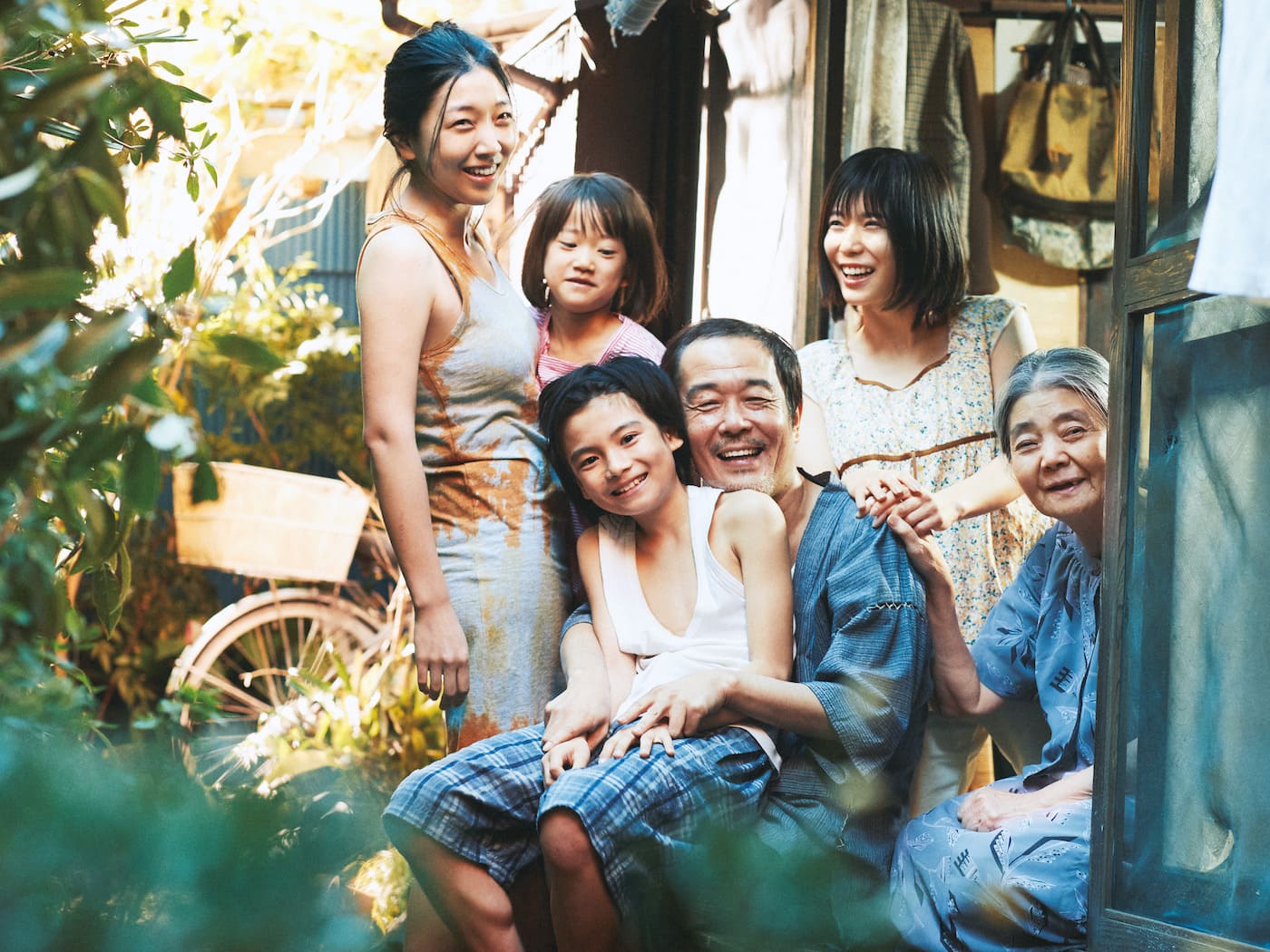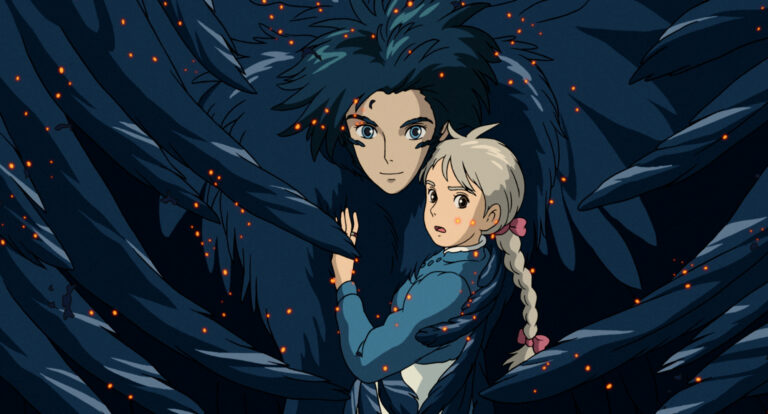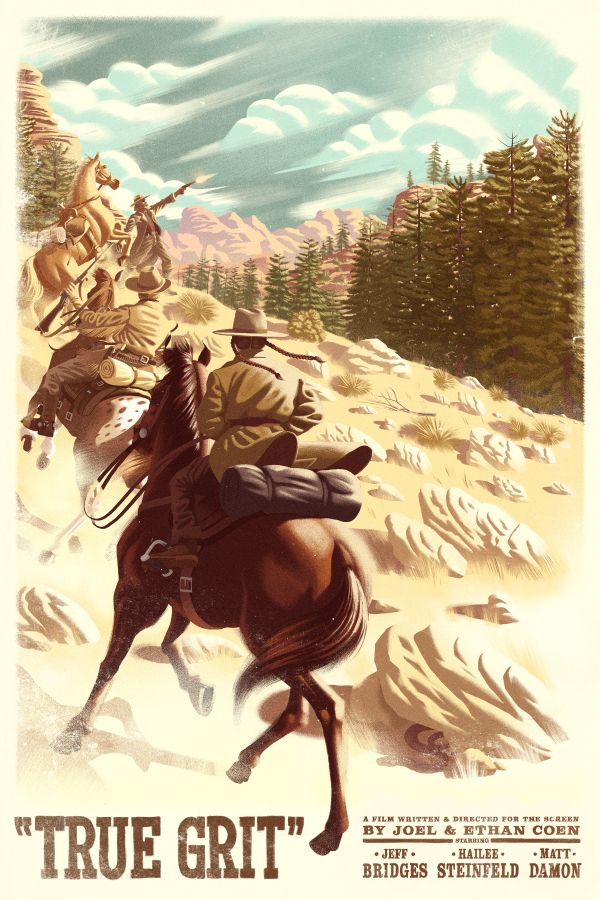What is family? And Is it the one we’re born with, or the one we choose? Shoplifters pulls us into exploring the damaging effect we can have on one another, even when there’s a good intention behind it. The film’s plot treading the thin line between what is acceptable and what isn’t, will certainly leave you with many questions. Beautifully told, Shoplifters reflects on a society deemed broken, its ending both a mix of hope and sadness – showing the two sides of a coin, but which one will the children have?
The Shibata family – the focus of the film – survive on just the basics of life. Their jobs unskilled and low-paid, leaving them with no choice but to survive on what they’re best at – breaking the law, though for Osamu Shibata, the father of the family, it seems he’d rather be a thief than a labourer. However, has he gone too far when on a cold night he brings home a child – one he’s found alone and hungry? In discovering more about the little girl’s situation the family decide not to return her to her parents. But does this mean they’ve stolen her, or rescued her? And what does it make them?
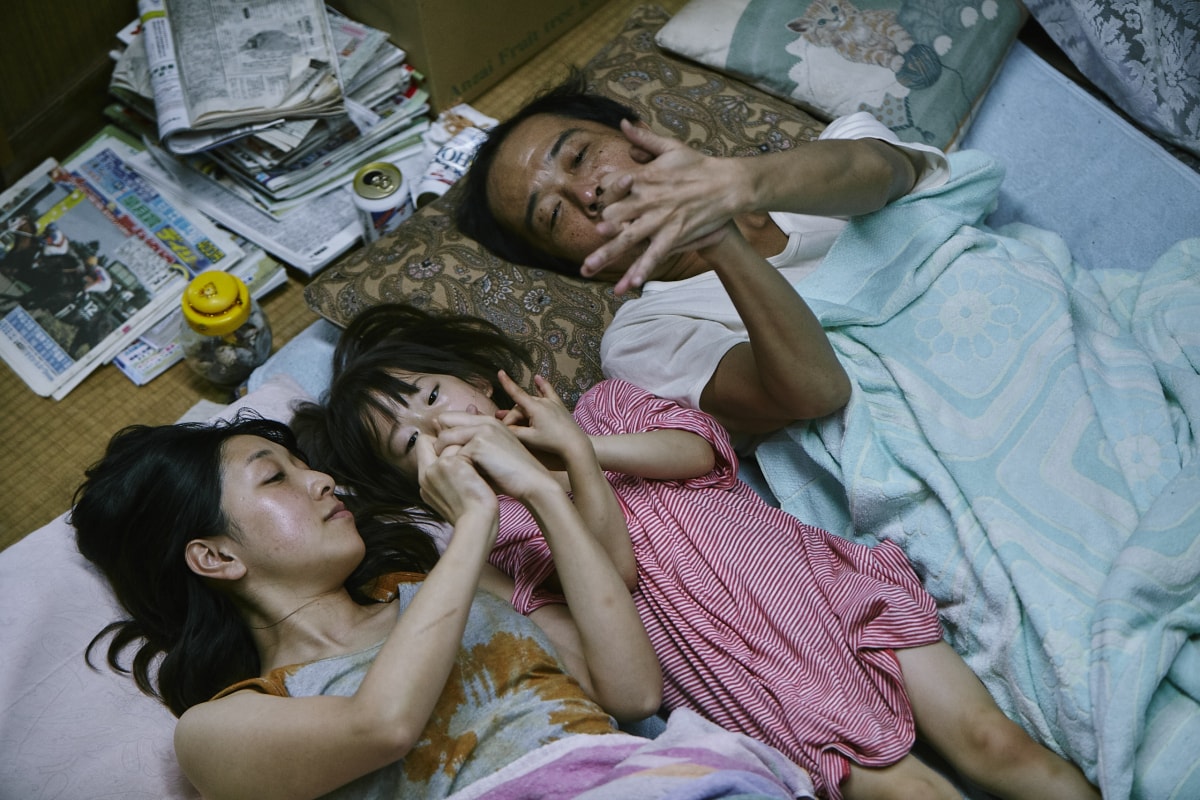 Photo courtesy of Magnolia Pictures
Photo courtesy of Magnolia Pictures
As the small five year old (Miyu Sasaki) spends time with her new family, so too does the audience, discovering a bit more about each of them. The grandma (Kirin Kiki) is sweet and kind-natured, but is she being taken advantage of? Or, is she in on the games each family member is playing? The young aunt, Aki Shibata (Mayu Matsuoka), hardly a role model, supports herself through pornography booths. However, Mayu, with great delicacy, shows the loneliness of Aki, her blank expressions portraying the pain of her job, while her childlike smiles are only seen on occasion and when receiving the smallest of attention – in short, she’s starved for affection. This is further emphasised by the way she clings to her grandma, not wanting to share her – but I sleep with grandma, the aunt states when moving rooms.
 Photo courtesy of Magnolia Pictures
Photo courtesy of Magnolia Pictures
The more complicated relationship in the family however, is between the mum, Nobuyo Shibata (Sakura Andô), and the dad, Osamu Shibata (Lily Franky). They’re shown not to have the usual physical relationship of partners, but more that of close friends. Just how did their relationship start and what makes their connection so strong? The answer being far removed from anything you could possibly guess at.
At first hesitant at the idea of having the young girl stay with them, the mum soon sees a resemblance to her own life in the child, causing her to want to keep and protect her. But in seeing a similarity between them, is the mother acting out the love and support she wished she had, and thereby in turn comforting herself?
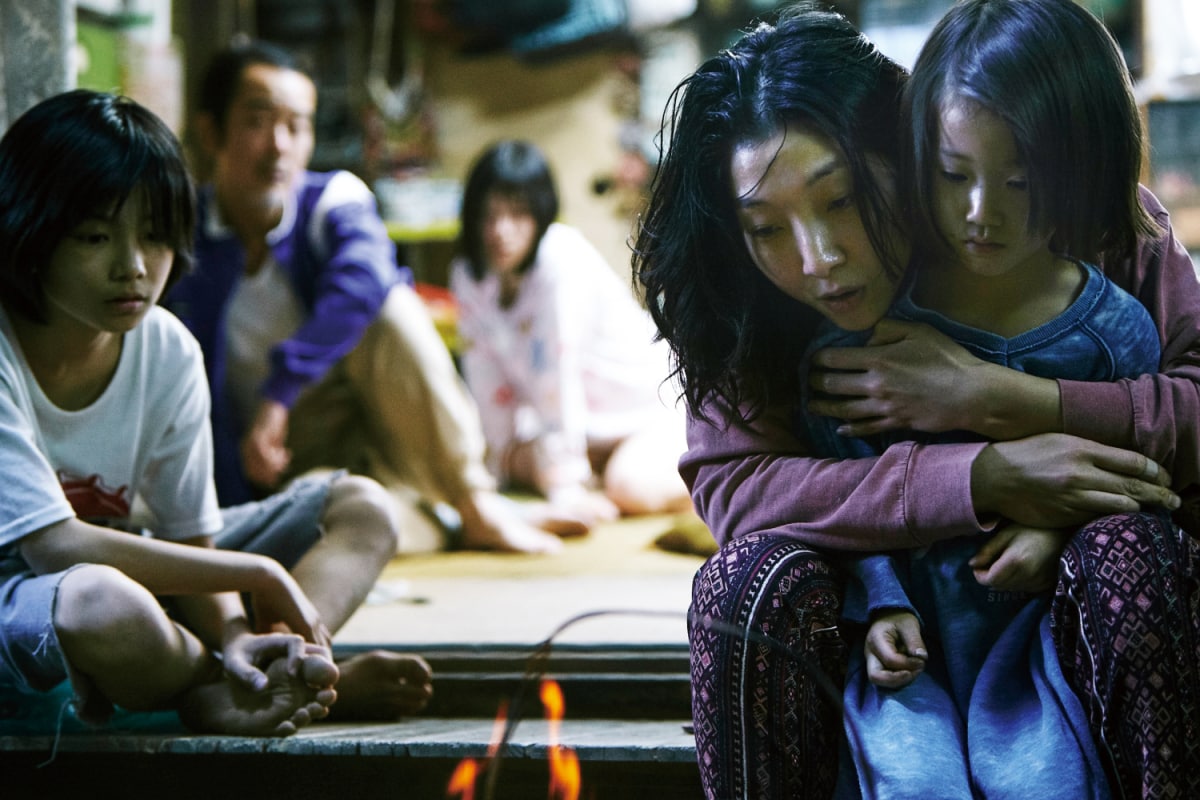 Photo courtesy of Magnolia Pictures
Photo courtesy of Magnolia Pictures
Meanwhile the father of the family is richly complex; he doesn’t seem to have an evil bone in his body, and yet he steals nonchalantly. Defending his actions as being innocent in intent, but by choosing to train his son, Shota Shibata (Jyo Kairi), to follow in his footsteps, is he committing a crime that can’t be undone? Lily Frankly is perfect as the father, revealing everything about his character with just his well-timed smiles, and the clumsy way he runs.
Filmed mainly within the Shibata house, Shoplifters makes you feel as if you’ve been invited into their family home, creating a multitude of feelings; warmth, poverty, filth and love. While, in the surrounding landscape of their house, you see the socio-economic differences; a small old-fashioned house set in the middle of a sprawling landscape of modern flats, each deprived of attention. These economic divides are continued into the parents’ jobs; a labourer and a laundry worker, with both shown to be one of many workers, and in each of their roles they build homes they can never afford, and clean clothes they could never have. An extreme divide existing between those who have money and those who do not. Although the upper and middle-classes are never shown – in fact few people are ever shown outside of the family – but society’s rules, judgement and wealth are. By choosing not to have a juxtaposed family or individual to compare against the Shibata’s, Shoplifters shows the effect society (including ourselves) can have on people’s lives, causing you to wonder about your own impact. Whether it be kind like the shopkeeper, or fickle like the media in swaying to a consensus of what’s right and wrong, rather than seeing the finer details.
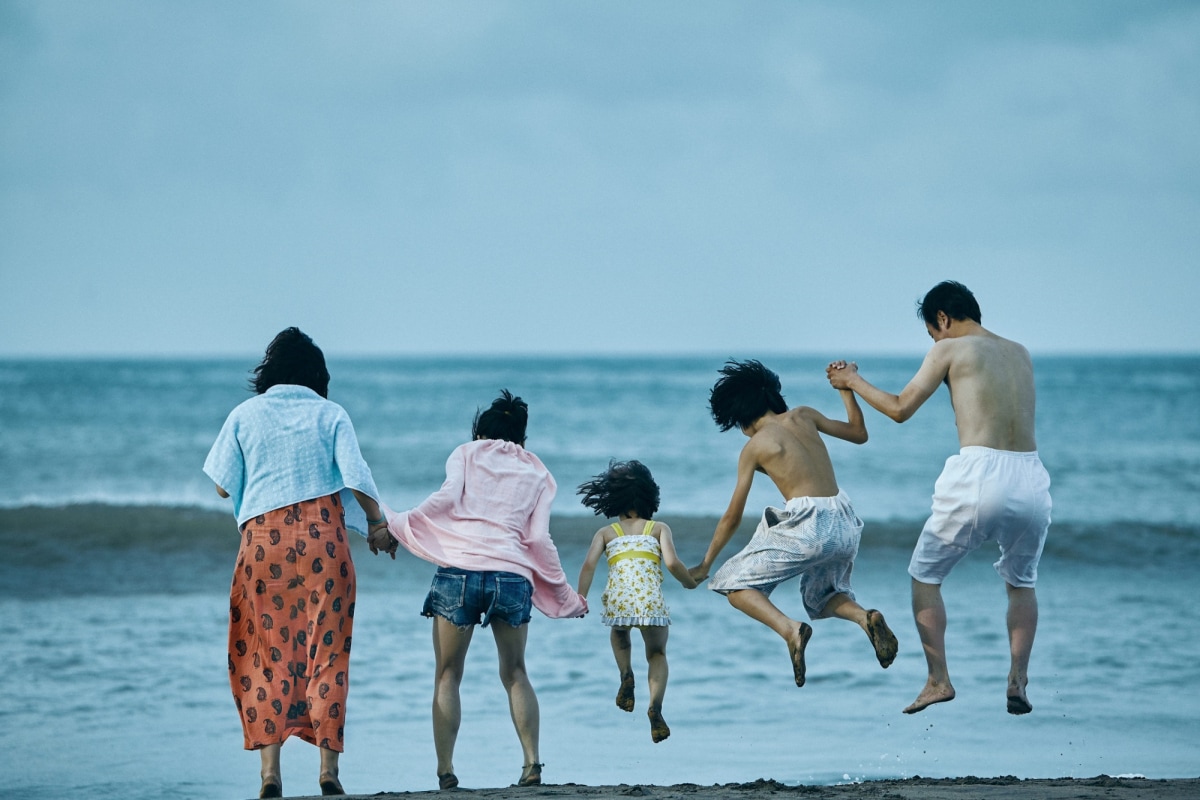 Photo courtesy of Magnolia Pictures
Photo courtesy of Magnolia Pictures
Shoplifters is highly atmospheric, from the closely-lived in home, to the wider shots of a desolate car park where the father and son play a game of chase. Later in the film, the family escape the city for a day to head to the countryside; its brightness is overwhelming, the greenness of the grass hitting you with its vibrancy, while in comparison the city seemed grey and full of dirt – leaving everyone touched by its mark.
There are also beautiful little touches to Shoplifters that show both innocence and poverty; from the little girl stamping her feet to follow after her “adoptive” brother, the shoes too big for her feet; or an innocent dream of father and son playing football, but acted out with a plastic bag; to one child stealing a packet of gluten cakes for the other, just because it’s their favourite.
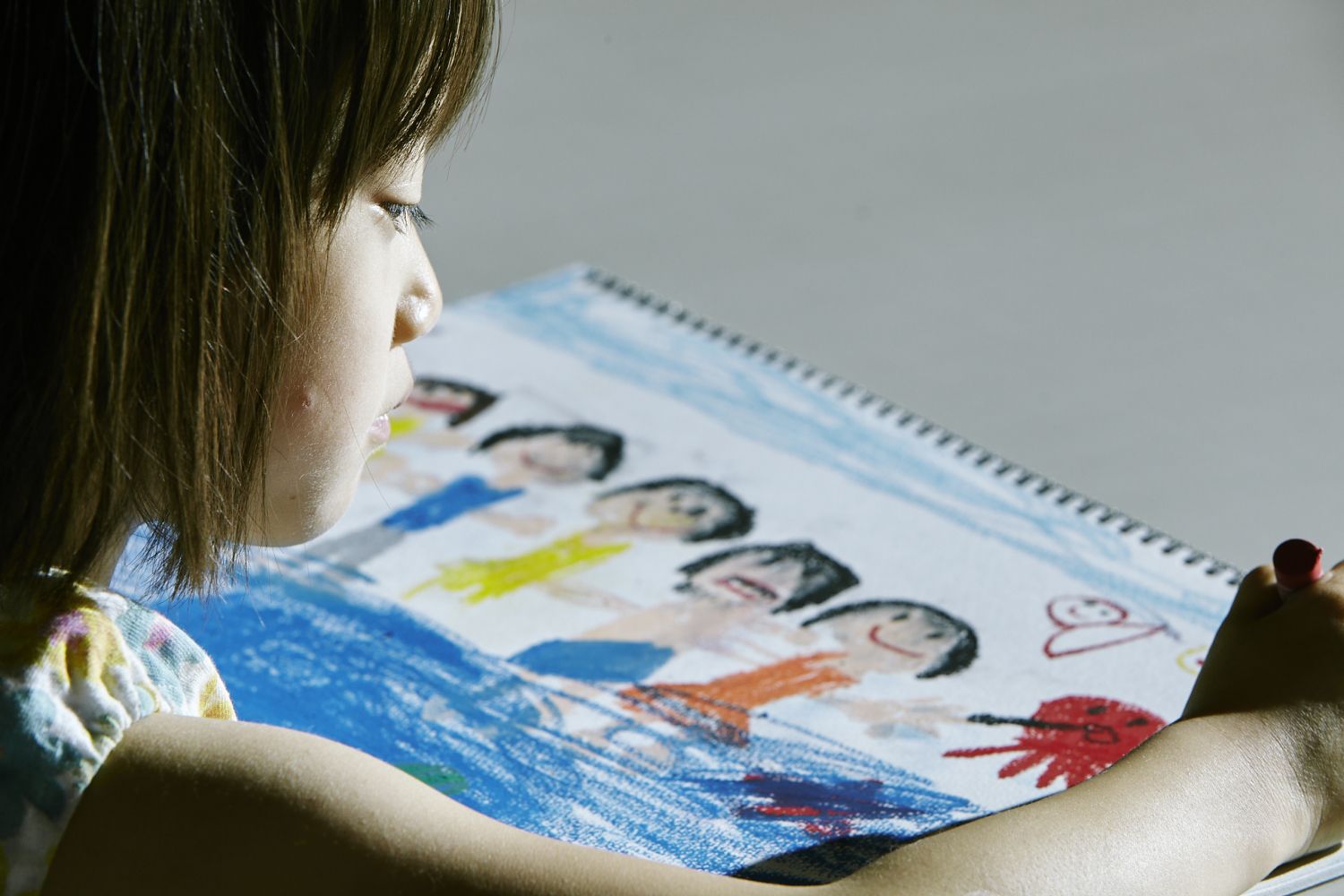 Photo courtesy of Magnolia Pictures
Photo courtesy of Magnolia Pictures
Shoplifters never focuses on one character but on the Shibata family as a whole, though they themselves certainly pivot around the children. At first, we look at the sudden change the young girl brings to the family and the jealousy felt from the son, to having the son’s eye opened to his world as she starts to copy everything he does, and so he begins to ask, is stealing right? Can it be justified? Does it have consequences? And in turn begins to question the father who raised him. The son’s character filling the larger half of the film as he begins to look at his life from further away, and thereby asking us to do the same. His coming-of-age story different from that often conveyed in the media, and so much more personal.
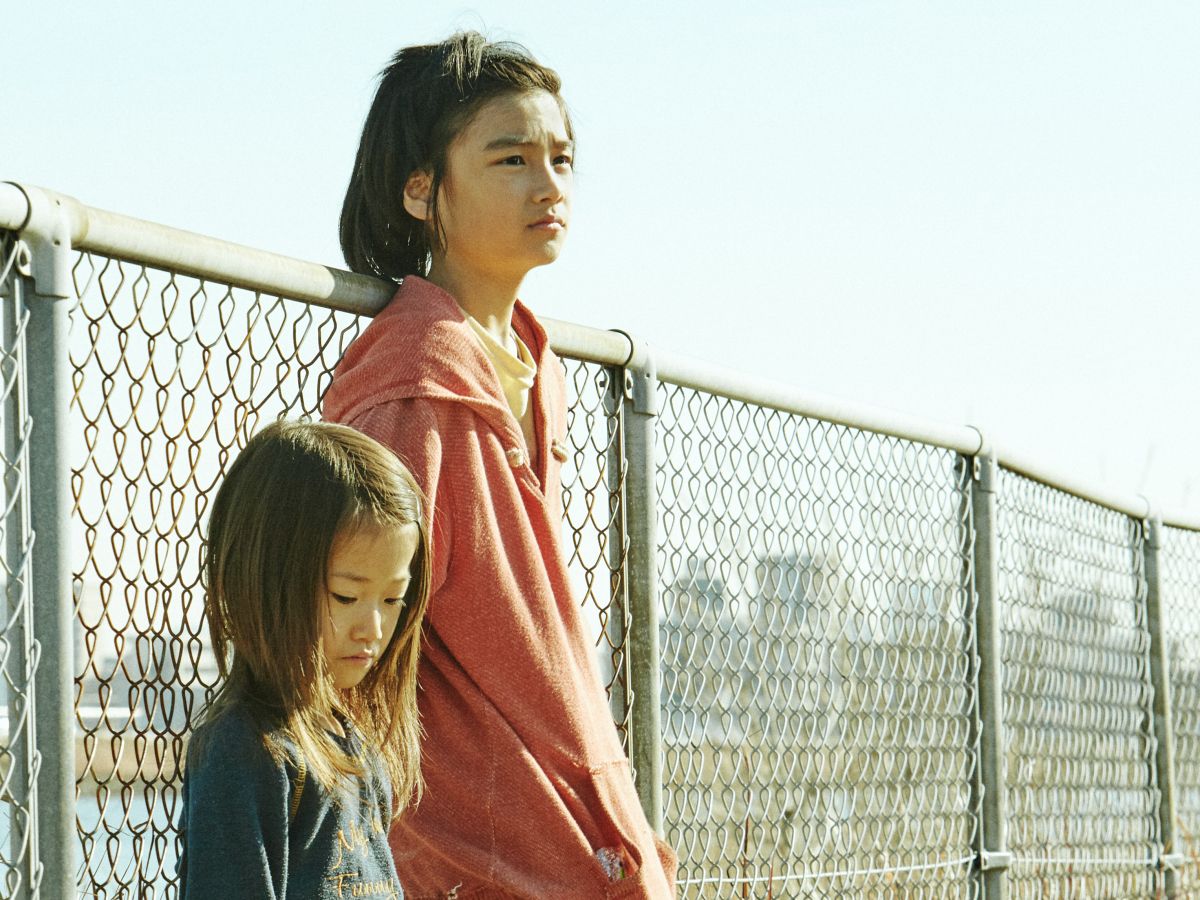 Photo courtesy of Magnolia Pictures
Photo courtesy of Magnolia Pictures
In travelling along with the Shibata family in their day-to-day life, we as the audience come to know more about their situation and their kind-heartedness, causing earlier preconceptions of right and wrong to be challenged. Even a customer of a pornography shop isn’t what you think, but is broken and hurt. The film’s final ending causes a spin in the film’s narrative of the family – one that makes Shoplifters well-worth watching again. But even with the final reveals, my view of the family remained largely unchanged – I felt sympathy for them.
I especially enjoyed the brilliant way the director and writer, Hirokazu Koreeda, introduced the outside world’s perspective of the family, causing us to refresh our own outlook, and to see how as a society we can view things as black and white. Shoplifters left me with many more thoughts, and to cause a re-evaluation in first glances and preconceptions, as it will for anyone lucky enough to see it.
Director & Writer: Hirokazu Koreeda
Other notable works:
- Broker 2022
- After the Storm 2016
- Our Little Sister 2015
- Like Father, Like Son 2013
- I Wish 2011
- Death of a Japanese Salesman 2011
- Still Walking 2008
- Nobody Knows 2004
- After Life 1998
- Maborosi 1995

